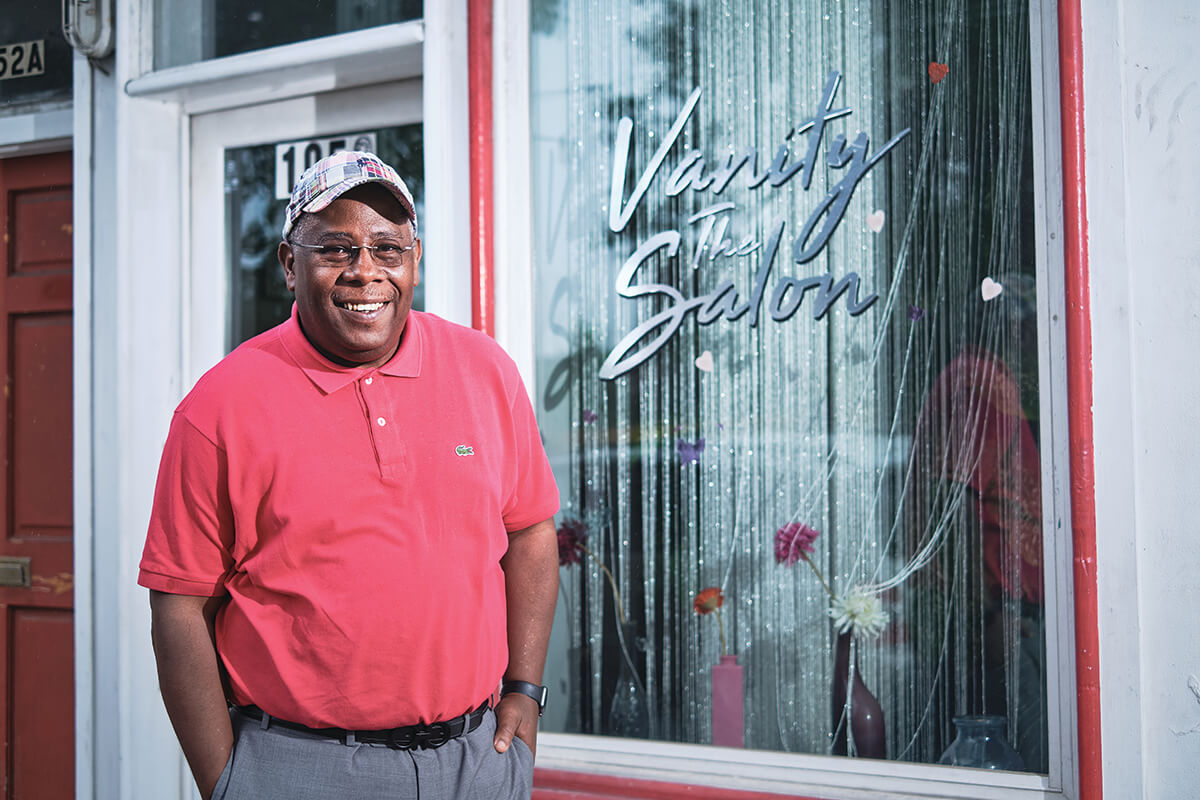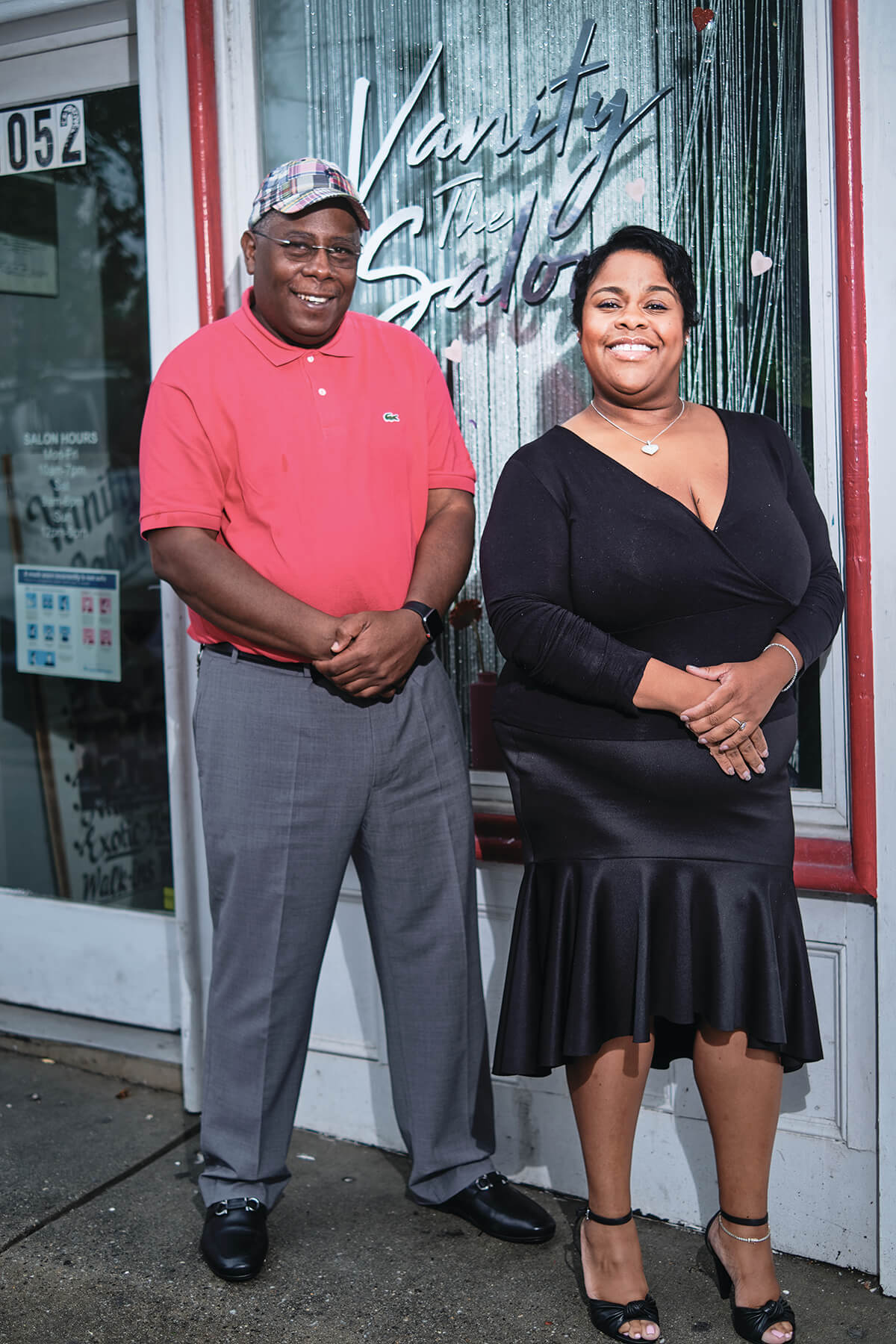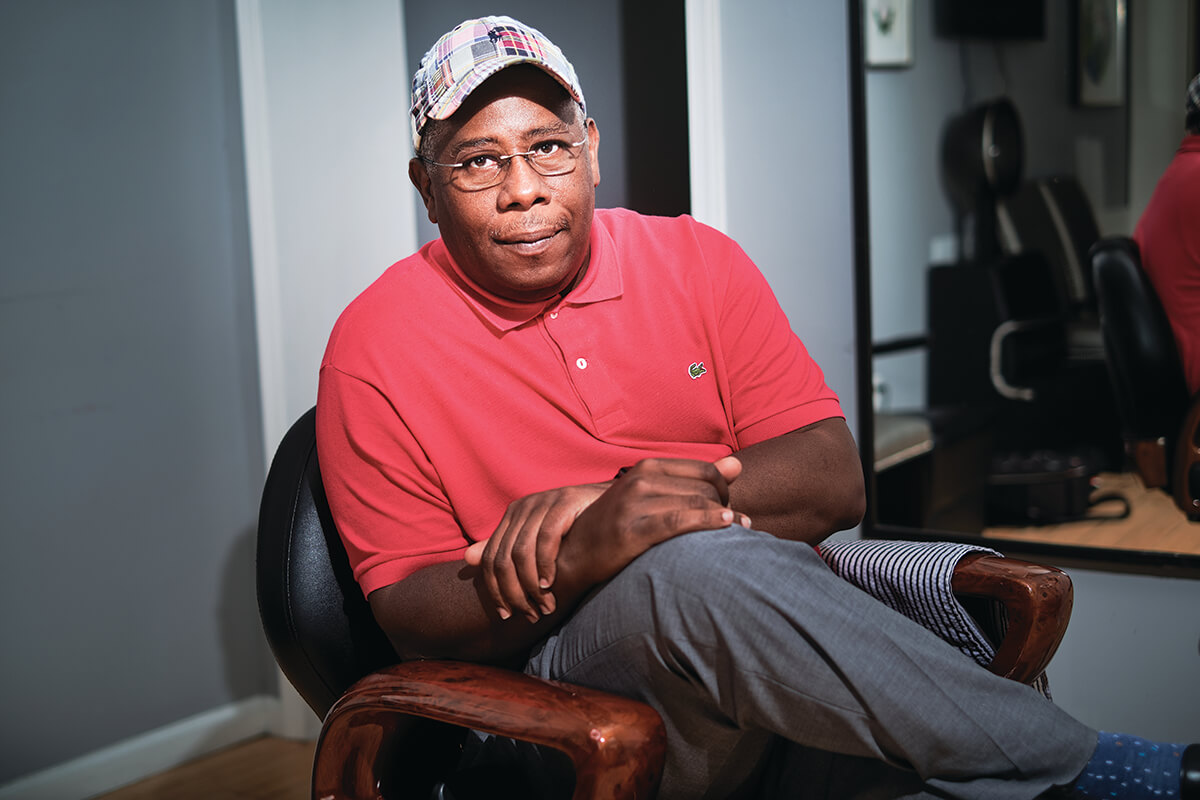GameChangers
Troy Staton’s Network of Barber Shops and Salons Brings Wellness Resources to Communities
More Than a Shop founder discusses the organization and how he was able to transform trauma into activism.

Troy Staton, 53, began cutting hair as a kid after fixing the haircut his mother gave his younger brother. And it wasn’t long before he was cutting hair for others in Cherry Hill. But after training under great mentors throughout the city, he came to understand that barbershops weren’t just a place to trim one’s tendrils—they’re community hubs.
Over the years, he used that platform for good, bringing African-American art exhibitions into his shop, and running food drives and programs with local schools. Then in 2018, he was the victim of a random shooting. Staton transformed that trauma into activism, founding More Than a Shop to bring vital resources to communities in need.
What is More Than a Shop?
More Than a Shop is a network of barbershops, beauty salons, and nail salons that brings resources to the community. We work with Kaiser Permanente to do healthcare screenings. We provide Wi-Fi in barbershops to address the information desert, we collaborate with Enoch Pratt on literacy, as well as the University of Maryland Children’s Hospital for it to become more accessible to its West Baltimore community. We educate barbers and beauticians to do sexual-health awareness, to correct misinformation being told to young adults, and to spread information about HPV and vaccination. We do training on NARCAN and overdose prevention, as well as safe disposal of medication. Those are just some of our collaborations. We make resources accessible and also do training for barbers and beauticians. In the near future, I want the vaccines to be done in barbershops and salons. We’ve begun, with the help of my son, Rashad, a tiered approach to COVID vaccination to disseminate information and get an understanding from the community about who is hesitating about getting a vaccine and understanding the reasons for that. In October or November, we’ll be looking for healthcare partners to help deliver COVID-19 vaccines just as we’ve done our health screenings.
Why? Because CVS is fine. Walgreens is fine. But what if there is no CVS or Walgreens, but there is a barber?
What makes barbershops so special?
Historically, coming out of slavery, the two jobs a Black man could have was barbering and blacksmith. As a slave, the black barber was able to travel from plantation to plantation, cut hair, and knew what was going on across the plantations and he received perks like clothes and could be deputized to be the doctor. Barbers have always known what was going on and had a sense of the structuring of communities. Some of the most influential individuals of our history and culture were children and grandchildren of barbers. Barbering has a strong historical context in our culture.
Why are the barbershops and beauty salons so important to this effort?
In our communities, there are no more rec centers. No more libraries. We suffer from information deserts, literacy deserts, food deserts. Now, there might be a community resource center and they’re well intended and provide needed services, but the average person who needs these resources lives within a four-block radius, and people do not normally leave their four-block radius. There are churches, but they only appeal to their parishioners and again, people who are right there. And a lot of the people who come to our churches come from outside the local community. Well, what sits in the middle of all of them? The barbershops and beauty salons. It’s the poor man’s country club. Everyone goes there. They’re trusted. You can decompress, you bring together children and elders. The beauticians are already equipped to do “counseling,” because your stylist probably knows you more intimately than your significant other.

You were offering resources as a pilot program when a young man came to your shop in 2018 and began shooting. How did that experience galvanize into More Than a Shop?
On Halloween, a masked young man came in and started shooting around and I became a victim of a senseless crime. I was at the hospital at Shock Trauma and the doctor said I’d been touched by angels because I had three holes in the back of my neck. The media sent cameras to the barbershop and people there spoke about all the work that I had done. Not that I thought it was work, I was just doing my part for the community. That community rallied around me—a barber. Then I knew I was doing something right. I realized it was time to share this with my fellow barbers and beauticians. That brought forth More Than a Shop.

How have you stayed positive in your mission even as a victim of gun violence?
Two things. Before that, I was part of Healing City Baltimore. Through that, I learned about trauma and trauma response and PTSD. I thank God I walked away, but being hostile wasn’t going to resolve anything. It solidified that I was doing something worthwhile in our city and it was time to move it forward.
Where do you want More Than a Shop to be in the future?
I want to create a trade association for barbers and beauticians to provide structure and stability. When the pandemic took place, barbershops and salons shut down—they had no money put aside. With More Than a Shop, our barbers were able to sustain through our collaborators even though their shops were shut down, and it’s helped them to build financial stability, to build credit.
They have also been able to get mental health awareness. You see, the young man who came into my shop and shot me? He has a barber. What happens is that young man goes to his barber and talks about it, now his barber is suffering PTSD and can’t speak up. So now we’re working with barbers to maintain their mental stability, as well as that of the community. People trust us, but we have to be informed. A healthy barber, stylist, and nail tech create a healthy community.